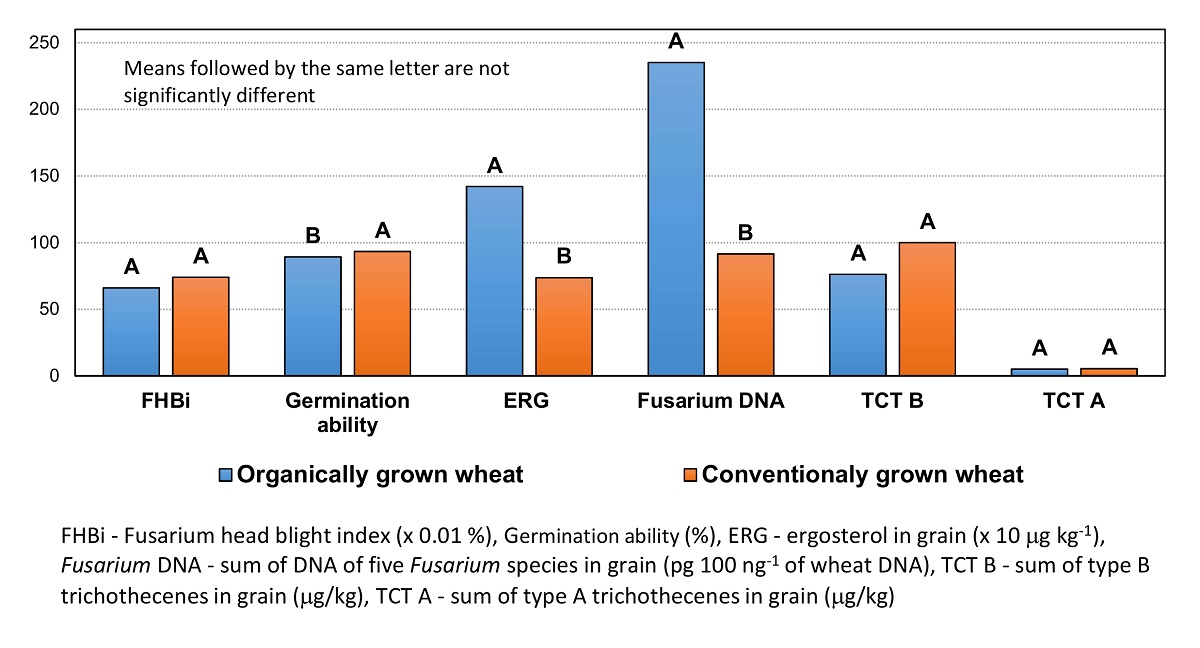Growing acreage and changing consumer preferences cause increasing interest in the cereal products originating from organic farming. Lack of results of objective test, however, does not allow drawing conclusions about the effects of cultivation in the organic system and comparison to currently preferred conventional system. Field experiment was conducted in organic and conventional fields. Thirty modern cultivars of winter wheat were sown. They were characterized for disease infection including Fusarium head blight, seed sowing value, the amount of DNA of the six species of Fusarium fungi as well as concentration of ergosterol and trichothecenes in grain. The intensity of the diseases occurring in wheat canopy was at a similar level in both systems. Increased Fusarium colonization expressed as ergosterol level or DNA concentration for the organic system did not reflect in an increased accumulation of trichothecenes in grain. However, we found lower sowing value of organically produced seeds. Significant differences between analyzed cropping systems and experimental variants were found. The selection of the individual cultivars for organic growing in terms of resistance to diseases and contamination of grain with Fusarium toxins was possible. Effects of organic growing differ significantly from the conventional and grain obtained such way can be recommended to consumers. There are indications for use of particular cultivars bred for conventional agriculture in the case of organic farming, and the growing organic decreases plant stress resulting from intense fertilization and chemical plant protection.

